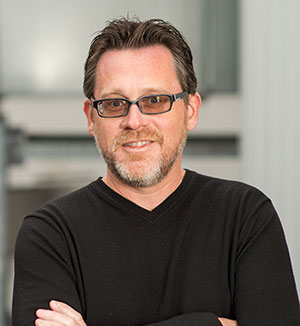Christopher C. Cummins
Class of 2016-17

Massachusetts Institute of Technology
Ludwig Mond Award,
Royal Society of Chemistry
American Academy of Arts and Sciences
Among the most innovative synthetic chemists of his generation, Christopher C. Cummins is known for his impact on small-molecule activation related to energy research. He also is recognized for generating and manipulating small molecules that exist only in interstellar space.
His ideas have inspired two generations of chemists, extending his approach to the California Institute of Technology, Harvard University, Princeton University, and other top research institutions.
As an undergraduate, Cummins performed research at Middlebury College, Stanford University, and Cornell University. He graduated from Cornell with a bachelor’s degree in chemistry in 1989. From there he studied inorganic chemistry under the direction of Nobel laureate Richard R. Schrock at the Massachusetts Institute of Technology (MIT) and obtained his doctoral degree from MIT in 1993.
Cummins joined the chemistry faculty at MIT as an assistant professor and three years later was promoted to professor. In 2015, he became the Henry Dreyfus Professor of Chemistry.
His research focuses on exploratory synthesis and reactivity studies involving elements from across the periodic table. That endeavor includes synthesis stemming from the elements nitrogen and phosphorus, methods to generate unsaturated reactive intermediates, new inorganic molecules and ligands, bonding modes and reaction patterns of carbon dioxide, uniting anion recognition and transition-metal coordination chemistries, and new oxygen-reduction phenomena.
Cummins was elected a member of the American Academy of Arts and Sciences in 2008 and a corresponding member of Germany’s Göttingen Academy of Sciences and Humanities in 2005.
He has received the Royal Society of Chemistry’s Ludwig Mond Award, the first Inorganic Chemistry Lectureship Award from the American Chemical Society’s Division of Inorganic Chemistry, the Raymond and Beverly Sackler International Prize in the Physical Sciences, the American Chemical Society’s F. Albert Cotton Award in Synthetic Inorganic Chemistry, the Alexander von Humboldt Research Award, the Dannie Heineman Prize from Germany’s Göttingen Academy of Sciences and Humanities, the National Science Foundation’s Alan T. Waterman Award, the American Chemical Society’s Award in Pure Chemistry, Phi Lambda Upsilon’s National Fresenius Award, the Alfred P. Sloan Foundation Fellowship, the E. Bright Wilson Prize from Harvard University, and the Packard Foundation Fellowship.
Cummins has lectured at The Ohio State University; the University of Michigan; the University of California, Berkeley; the University of Notre Dame; Stanford University; the California Institute of Technology; Columbia University; and the University of Chicago.
He has written or co-written more than 180 articles for peer-reviewed journals.
As a Faculty Fellow in the Hagler Institute for Advanced Study, Cummins will collaborate with faculty and students from the College of Science and the College of Engineering.
For more updated information:
http://web.mit.edu/ccclab/members/cummins/index.html
Students
Subrata Kumar Ghosh – 2017-18
